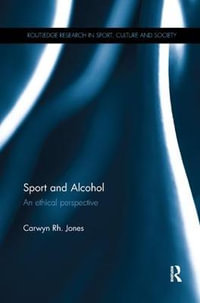For two days in late September 1988, Canada's Ben Johnson was the most celebrated athlete on the planet.
Winner of the 100-meter sprint at the Seoul Olympics in a world record 9.79 seconds, he'd just had time to say, "A gold medal--that's something no one can take away from you," before testing positive for a performance enhancing drug and giving back his medal.
Later admitting to steroid use, Johnson has lived in ignominy ever since, but there's much more to his incredible story. The sprint he won in Seoul has since been called "the dirtiest race in history," with six of the eight competitors linked to doping infractions. The steroid for which Johnson tested positive was not the steroid he believed he was using. His drug screening was riddled with irregularities and crucial testing evidence was withheld by Olympic officials in Seoul, circumstances that credible experts now say denied Johnson his right to due process and should have prevented his disqualification.
With unprecedented access to Johnson, sportswriter Mary Ormsby now tells his whole story for the first time: how a shy Jamaican kid descended from enslaved African plantation workers became a Canadian sprinting superstar; how a disgraced former athlete came to coach Diego Maradona and the son of a Libyan dictator while fighting tirelessly to determine exactly what happened to him on that fateful day in 1988.
Industry Reviews
"It was the greatest moment in Canadian sports history (yes, including all the ones involving hockey players....) For thirty-six glorious hours, we were on top of the world...and then we weren't. All these years later, even for those who didn't live through it, the Ben Johnson morality play remains a signpost in our culture. Mary Ormsby, who was there, is a great, uncompromising reporter. She takes us back through the many twists and turns of the story with its collection of vivid characters and shows us what we all missed. Yes, Ben tested positive in Seoul. He fessed up at the Dubin Inquiry. They caught him twice more after that. Cue the cycle of shame and ridicule and pathos. But then Ormsby asks a question we should have asked a long time ago: 'Is it possible to railroad a guilty man?'" -Stephen Brunt, best-selling author
























